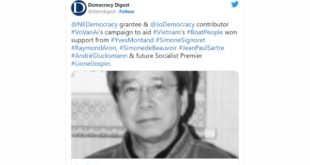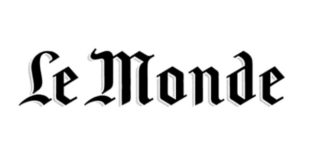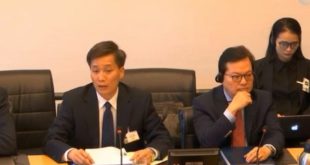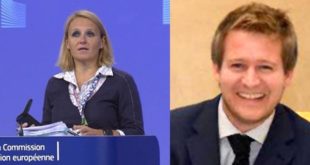HANOI, Oct 16 (Reuters) – Communist Vietnam said on Thursday it had set curbs on travel by three Buddhist monks for a period of two years but added that the action was spurred by legal violations and not meant as religious repression.
The three men are members of the Unified Buddhist Church of Vietnam, which has sought recently to reestablish itself after being replaced in 1981 by a state-sanctioned Buddhist group.
Vietnam recognises six religions, including Buddhism, the country’s dominant religion, but requires the groups to submit to government scrutiny in all aspects of their operations.
Foreign Ministry spokesman Le Dung said in a statement the Ho Chi Minh City local government issued a decision on October 11 to put Pham Van Thuong, Le Quang Thien and Ngo Van Su under “administrative watch and restriction” for two years.
The three are accused of “sabotaging the unity between the people and Buddhism”. Dung said, “There is absolutely no ‘religious repression’ in Vietnam but only the settlement of law violations.”
The curbs mean the movements and activities of the three monks will be monitored and while not strictly confined to their homes, they will be limited in how far they can travel.
The Foreign Ministry statement made no reference, however, to two Church leaders accused by the government last week of possessing state secrets.
Group patriarch Thich Huyen Quang, 86, and his 74-year-old deputy Thich Quang Do, stopped by authorities last Thursday while travelling from their monastery in the central province of Binh, are dissidents championed by human rights groups and politicians.
By not officially announcing punishments for the group’s elderly leaders, who were sent to separate monasteries following their questioning over the “state secrets”, Hanoi may be trying to allay diplomatic fears on the issue of freedom of religion.
“I don’t know if this is linked to the upcoming visit of the U.S. guy,” said one western diplomat in Hanoi, referring to the October 18-24 visit of John Hanford, America’s ambassador at large for international religious freedom.
Hanford is set to assess the status of religious rights in Vietnam. America is one of the fiercest critics of Vietnam’s human rights record and some lawmakers want to tie aid to Vietnam to improvements in personal freedoms.
 Quê Me Quê Me: Action for democracy in Vietnam & Vietnam Committee on Human Rights
Quê Me Quê Me: Action for democracy in Vietnam & Vietnam Committee on Human Rights




